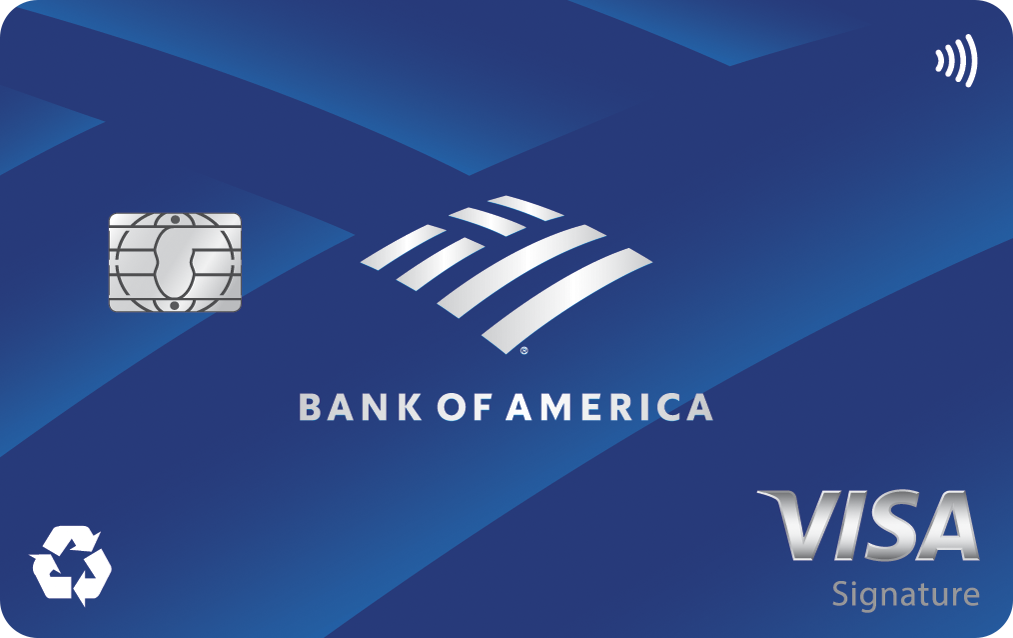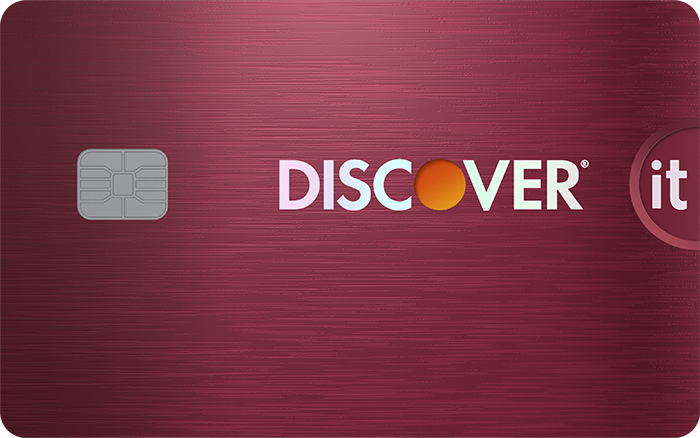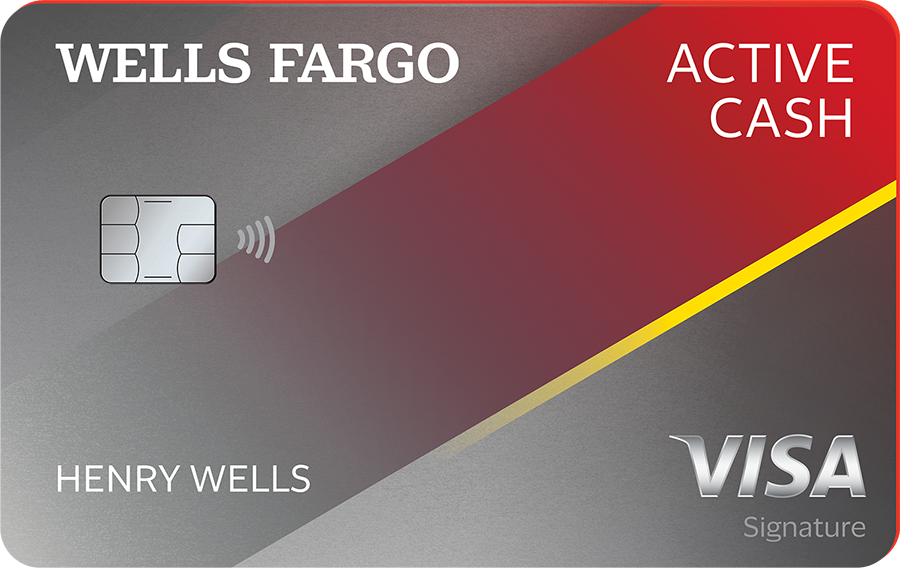People usually apply for credit cards one at a time, and with plenty of time between applications. If you have a couple cards you like, and especially if they have limited-time bonus offers, you might consider applying for multiple credit cards at once. There are pros and cons to doing this. Read on to decide if you should give it a try.
Reasons to apply for multiple credit cards at once
The most common reasons to apply for multiple credit cards at once are:
- To earn more sign-up bonuses
- To earn more purchase rewards
- To boost your available credit
These can all be good reasons, especially with how easy it is to apply for a credit card online. To see if any of them make sense for you, let's learn more about each one.
Earning more sign-up bonuses
Sign-up bonuses are introductory credit card bonus offers available to new cardholders. For example, some cards offer a $200 cash bonus if you spend $500 in the first three months. These are one of the most valuable credit card benefits, but the best ones are often only available for a limited time.
Rewards enthusiasts sometimes decide to open multiple cards with bonuses simultaneously. Why limit yourself to one bonus if you can get two or more? This also ensures you snag limited-time bonuses before they expire.
The key here is to make sure you can meet all the bonus requirements. If each bonus has a separate spending minimum, add those up and see if your regular spending will be enough.
Earning more purchase rewards
Rewards credit cards earn some type of reward on your purchases. Depending on the card, rewards can be cash back, points, or miles.
Many of these cards earn a higher rewards rate in bonus categories, like groceries or dining. Others earn a flat rate, such as 2%, on purchases across all spending categories.
If you don't mind keeping track of which cards to use for different purchases, combining rewards cards can be a great way to save more money. Instead of just applying for one type of credit card, you could get a grocery card, a dining card, plus a flat-rate card to use everywhere else.
Boost your available credit
Every time you're approved for a credit card account, that's a new line of credit you can use. If you get approved for two new cards, each with a $1,000 credit limit, you have $2,000 more in spending power.
This can be a good or a bad thing. On the one hand, you need to be careful not to spend more because of that additional credit. Otherwise, you risk ending up in credit card debt.
Having more credit can be helpful if you have lots of monthly bills and you've been getting close to your credit limit. Another benefit of more credit is that it can help your credit utilization ratio, an important factor in your credit score.
Credit card comparison
We recommend comparing options to ensure the card you're selecting is the best fit for you. To make your search easier, here's a short list of standout credit cards.
| Offer | Our Rating | Welcome Offer | Rewards Program | APR | Learn More |
|---|---|---|---|---|---|
|
Rating image, 4.50 out of 5 stars.
4.50/5
Our ratings are based on a 5 star scale.
5 stars equals Best.
4 stars equals Excellent.
3 stars equals Good.
2 stars equals Fair.
1 star equals Poor.
We want your money to work harder for you. Which is why our ratings are biased toward offers that deliver versatility while cutting out-of-pocket costs.
|
Discover will match all the cash back you’ve earned at the end of your first year. | 1% - 5% Cashback Earn 5% cash back on everyday purchases at different places you shop each quarter like grocery stores, restaurants, gas stations, and more, up to the quarterly maximum when you activate. Plus, earn unlimited 1% cash back on all other purchases. |
Intro: Purchases: 0%, 15 months Balance Transfers: 0%, 15 months Regular: 18.24% - 27.24% Variable APR |
||
|
Rating image, 5.00 out of 5 stars.
5.00/5
Our ratings are based on a 5 star scale.
5 stars equals Best.
4 stars equals Excellent.
3 stars equals Good.
2 stars equals Fair.
1 star equals Poor.
We want your money to work harder for you. Which is why our ratings are biased toward offers that deliver versatility while cutting out-of-pocket costs.
|
$200 cash rewards Earn a $200 cash rewards bonus after spending $500 in purchases in the first 3 months. | 2% cash rewards Earn unlimited 2% cash rewards on purchases. |
Intro: 0% intro APR for 12 months from account opening on purchases and qualifying balance transfers Purchases: 0% intro APR, 12 months from account opening Balance Transfers: 0% intro APR, 12 months from account opening on qualifying balance transfers Regular: 19.24%, 24.24%, or 29.24% Variable APR |
||

Apply Now for Bank of America® Travel Rewards credit card
On Bank of America's Secure Website. |
Rating image, 4.00 out of 5 stars.
4.00/5
Our ratings are based on a 5 star scale.
5 stars equals Best.
4 stars equals Excellent.
3 stars equals Good.
2 stars equals Fair.
1 star equals Poor.
We want your money to work harder for you. Which is why our ratings are biased toward offers that deliver versatility while cutting out-of-pocket costs.
|
25,000 points 25,000 online bonus points after you make at least $1,000 in purchases in the first 90 days of account opening - that can be a $250 statement credit toward travel purchases | 1.5-3 points per dollar Earn unlimited 1.5 points per $1 spent on all purchases, with no annual fee and no foreign transaction fees, and your points don't expire as long as your account remains open. Earn 3 points per $1 spent on travel purchases booked through the Bank of America Travel Center. |
Intro: 0% Intro APR for 15 billing cycles for purchases. 0% Intro APR for 15 billing cycles for any balance transfers made in the first 60 days. After the intro APR offer ends, 18.24% - 28.24% Variable APR on purchases and balance transfers will apply. A 3% fee for 60 days from account opening, then 4% fee applies to all balance transfers. Balance transfers may not be used to pay any account provided by Bank of America. Purchases: 0% Intro APR for 15 billing cycles for purchases Balance Transfers: 0% Intro APR for 15 billing cycles for any balance transfers made in the first 60 days Regular: 18.24% - 28.24% (Variable) |
Apply Now for Bank of America® Travel Rewards credit card
On Bank of America's Secure Website. |
Risks of applying for multiple credit cards at once
The biggest risks of applying for multiple credit cards at once are:
- The applications will lower your credit score.
- It can lead to credit card debt.
- You could have trouble managing your credit cards.
Here's more information on each one so you can decide if they're worth worrying about.
The applications will lower your credit score
A credit card application has a small impact on your credit score. Each application puts a hard credit check (also known as a hard credit inquiry) on your credit history. It usually only takes off a few points at most, but multiple credit inquiries can add up to a larger amount.
Each new credit card also lowers your average account age. This is another factor that affects your credit score. If you have one credit card account that's five years old, and then you add three new cards, that's going to lower the average age of your accounts quite a bit.
There may not be a big impact, especially if you already have good credit or excellent credit. For some anecdotal evidence, I once applied for six credit card offers in a day because of the cash bonuses they were offering. My credit score only dropped by nine points.
READ MORE: Does Applying for a Credit Card Hurt Your Credit Score?
It can lead to credit card debt
Some people are tempted to spend more when they have credit cards. Because you don't need to pay them off right away, it's easier to convince yourself to make purchases you can't quite afford. And when you have several credit cards, all with plenty of available credit, it can be even more dangerous.
The best way to avoid issues here is to follow a budget. If you're sure you can do that, then the number of credit cards you have won't be an issue. But if you think you might start spending more if you have too many credit cards, then it's better to stick to one.
You could have trouble managing your credit cards
The more credit cards you have, the harder it is to manage all of them. There's a bigger chance of missing a due date, not having enough in your bank account to cover a payment, or forgetting about the requirements for a bonus.
However, it's not impossible. Plenty of people comfortably manage many different credit cards. There are also ways to simplify it, like setting up autopay and making a spreadsheet with all the bonuses you're working toward. What's important is finding the right number of cards for you.
Should you apply for multiple credit cards at once?
Applying for multiple credit cards at once can be a good idea in certain situations. Here are the most important requirements if you're going to do it:
- You have a high credit score. Since applying for multiple cards can affect your credit, I recommend only doing it if you have a credit score of 720 or higher. That way, a small drop in your credit score won't be a problem.
- You pay your credit card bills in full. It's best not to carry balances on your credit cards. Only get multiple cards if you know you'll be paying off the full balances every month.
- You don't need to apply for a loan in the next year. Lenders are more likely to deny your application or charge a higher interest rate if you have multiple credit card applications on your credit report. If you're planning to get a car loan or a mortgage in the near future, be very selective about credit card applications.
If you can check all those boxes, then you may want to apply for a few of the best credit cards instead of just one.
READ MORE: How to Apply for a Credit Card (and Get Approved)
FAQs
-
Yes, you can apply for two credit cards on the same day. There's no rule limiting how many credit cards you apply for.
Some credit card companies have their own restrictions and will only let you apply for one of their cards within a set amount of time. If you're planning to apply for two cards from the same card issuer, check first to see if it has any rules like this.
-
Yes, you can apply for two credit cards in one week. Consumers can apply for as many credit cards as they want.
A credit card issuer could have its own rules about the number of cards you can get within a certain timeframe. If you want to get two credit cards from the same company, learn about its rules first.
-
As a general rule, wait at least three to six months between credit card applications. By waiting this long, the applications shouldn't have too much of an impact on your credit score. If you're working on earning an introductory bonus, you may want to wait until you've done that before applying for a new credit card offer.
It's not always necessary to wait this long between credit card applications. If you're confident you can manage multiple new credit cards, there could be times when it makes sense to apply for different cards at once or within a short period of time.
We're firm believers in the Golden Rule, which is why editorial opinions are ours alone and have not been previously reviewed, approved, or endorsed by included advertisers. Motley Fool Money does not cover all offers on the market. Motley Fool Money is 100% owned and operated by The Motley Fool. Our knowledgeable team of personal finance editors and analysts are employed by The Motley Fool and held to the same set of publishing standards and editorial integrity while maintaining professional separation from the analysts and editors on other Motley Fool brands. Terms may apply to offers listed on this page.
The Motley Fool owns shares of and recommends Visa.

